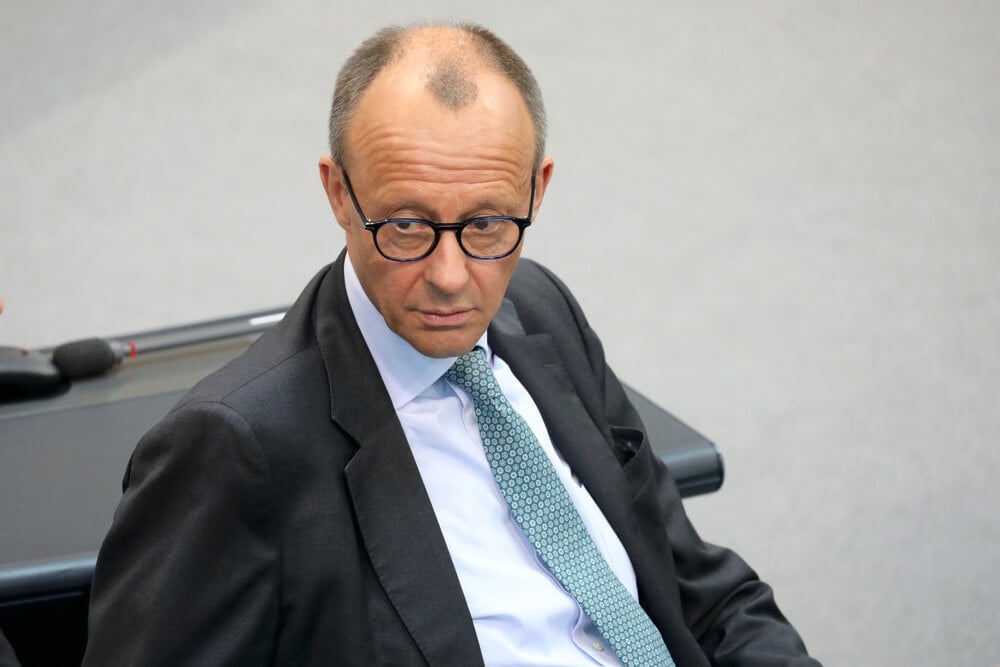Chancellor Olaf Scholz accelerated the search for the country's political and economic stability with his decision to dissolve the ruling coalition and thus trigger snap elections for the federal parliament.
This acceleration seems to correspond to all major groups in German politics, including Scholz's Social Democrats. The government they lead from 2021 has not been fully functional for a long time, which is harming the ratings of each of its three members individually.
When there is less than a year before crucial parliamentary elections, the coalition partners prioritise preserving and improving their ratings above all else in order to remain united until the very end.
Europe can be satisfied with Scholz's strategy, as many desire the quickest possible political and, even more so, economic stabilisation of Europe's largest economy.
However, the early German elections, now scheduled for March rather than September, will take place in an unfavourable environment, with the stakes being the European Union's overall stance towards the US, Russia, and China.
The government's long downward trend
Scholz's block has been taking heavy hits throughout the year. A strong alarm was the decrease in support for all three members in the last June elections for the European Parliament. Scholz's SPD secured two fewer MPs than in 2019, while the Greens lost nine seats in the European Parliament.
The elections in the eastern German states that followed in September confirmed their downward trend. The Social Democrats then managed to keep the primacy in Brandenburg but only the fourth position in Saxony and Thuringia, with support falling by a few percentage points. The decline of the Greens was even more pronounced.
Along with their decline, the positions of the extreme right-wing parties from the AfD, as well as the new far-left populist party BSW, have been increasing. The growing popularity of both parties as they enter the pre-election year poses a threat to the established parties.
The economic stumbling that accompanied the political troubles of Scholz's cabinet was the reason for the chancellor to begin the process of shortening the mandate
However, the economic stumbling that accompanied the political troubles of Scholz's cabinet was the reason for the chancellor to begin the process of shortening the mandate, expecting to be able to control it.
The German economy will end this year in stagnation, the second in a row, with a projected contraction of 0.2%. Stagnation affects not only the Germans but also many other European economies, as Germany's problems directly impact them.
Disagreements over the 2025 budget among coalition partners in the government escalated the crisis, leading to the removal of Christian Lindner, the leader of the pro-business Free Democrats, the smallest party in the tripartite bloc, as finance minister.
CDU's support in the transition
Chancellor Scholz will gain an ally in the largest opposition party, the CDU, during the transition period leading up to the scheduled parliamentary vote of confidence on 15 January.
Its leader, Friedrich Merz, promised support in the transition on issues that Germany cannot put on hold and on which it has the same positions as Scholz's Social Democrats, primarily the continuation of aid to Ukraine.
But the support will not come "for free," and Mr Merz, the Christian Democratic candidate for the future chancellor, is asking for an even greater acceleration.
 We just cannot afford to have a government without a majority for several months - Friedrich Merz
We just cannot afford to have a government without a majority for several months - Friedrich Merz
“We just cannot afford to have a government without a majority for several months, and then another few months of election campaigning, and then possibly another few months of coalition negotiations,” said the CDU leader.
In any case, Germany will experience turmoil at a very vulnerable time for the EU, regardless of whether Scholz plans to hold the elections in March or even earlier, as the Christian Democrats have been demanding, eager to capitalise on their strong popularity.
The effect of Trump's victory
The campaign and the forthcoming elections are taking place during a period of political instability in France, primarily due to the unstable support for Michel Barnier's government.
This means that in the coming months, and possibly during the entire first half of next year, the Franco-German engine that drives the EU politically and especially economically will work with reduced power.
The haste with which the biggest German political factors are moving towards the new elections is undoubtedly a consequence of the change in the US, that is, the victory of Donald Trump in the presidential elections.
The German acceleration is a preparation for the expected distancing of the future administration in Washington from Ukraine and from security ties with the Europeans in general
Berlin seems aware of its responsibility to prepare both Germany and the EU as well as possible and on time for the expected American cooling towards its European partners, which will inevitably come when Trump takes office in January.
Also, the German acceleration is a preparation for the expected distancing of the future administration in Washington from Ukraine and from security ties with the Europeans in general.
These major changes could not be mitigated by the unstable and unpopular government in Berlin in a pre-election mode, burdened by the race for the Bundestag.
"After the US elections we need to show we can be relied on," Chancellor Scholz stated, announcing the dissolution of his coalition. At the same time, his statement is unequivocally one of the first pre-election messages in the campaign that has de facto already started.